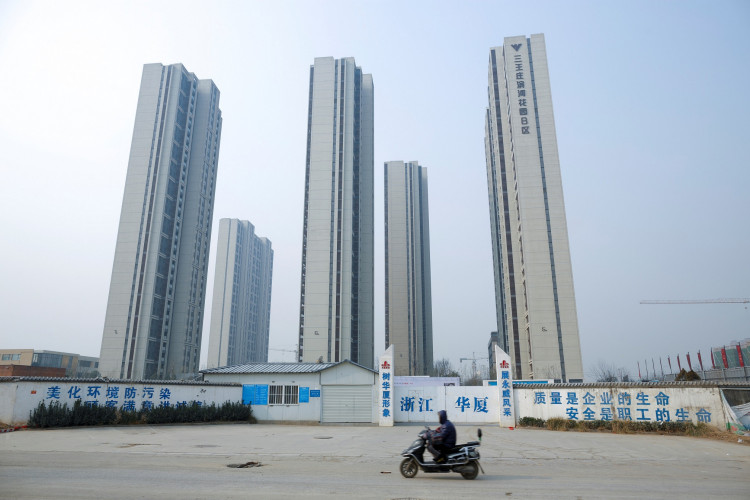Beijing, alongside other major Chinese cities, has moved to ease home purchase restrictions in a bid to stimulate demand in the struggling property market. On Monday, Beijing announced new measures aimed at reducing the financial barriers for homebuyers, following similar moves by Shanghai and Shenzhen.
These measures include lowering the minimum down payment ratio for first-time buyers to 15% and reducing the down payment requirement for second-time buyers to 20%. In addition, Beijing has also loosened rules for non-local buyers, reducing the required duration of social insurance or income tax payments from five years to three in central areas.
These changes come as part of a broader strategy by the Chinese government to stabilize the real estate sector, which has been in decline for several years. The central government has made it clear that turning around the property slump is a priority, with top leaders recently pledging decisive action to prevent further deterioration. The easing of homebuying restrictions in China's major cities marks one of the boldest steps yet in this effort, following other significant policy interventions such as mortgage refinancing and interest rate cuts.
On Sunday, Guangzhou became the first Tier-1 city to completely remove all restrictions on home purchases. The city announced it would no longer review homebuyer eligibility or limit the number of homes individuals could own. Meanwhile, Shanghai and Shenzhen, two of China's largest and most economically significant cities, introduced measures allowing more residents to buy homes in suburban areas while also lowering down payment requirements for first and second homes to 15% and 20%, respectively.
The central bank, the People's Bank of China (PBOC), has also played a significant role in this campaign, announcing it will allow for the refinancing of existing mortgages. The PBOC's initiative is expected to reduce borrowing costs for homeowners by an average of 50 basis points, potentially saving individual borrowers up to $21 billion annually. The refinancing initiative marks an important expansion of a similar policy introduced last year, which at the time applied only to first-home buyers. Now, second-home buyers will also be eligible for mortgage refinancing, a move that underscores China's urgency to address the property market downturn.
These policies have already had a positive effect on Chinese property stocks, which surged following the announcements. A Bloomberg index tracking Chinese property stocks jumped as much as 14% on Monday morning, driven by the relaxation of homebuying curbs. Shares of major real estate developers like Longfor Group Holdings and China Resources Land saw double-digit gains, with the Hang Seng Mainland Properties Index climbing 7%, adding to last week's impressive 30% gain.
The property sector, which once accounted for more than a quarter of China's GDP, has been in decline since Beijing cracked down on the industry's high debt levels in 2020. The prolonged slump has been exacerbated by weak demand, sluggish economic growth, and over-leveraged developers. These challenges have led to falling property prices and a decline in new home sales, adding to the economic woes facing China as it struggles to maintain stable growth.
Analysts, however, caution that while these measures may help stabilize the market, they are unlikely to trigger a swift recovery. According to Gary Ng, an economist at Natixis, the easing measures are expected to have a more limited effect in smaller cities, where elevated inventory levels and weaker demand pose bigger challenges. He noted that the policy changes could lead to some stabilization in prices, but a sharp turnaround in the property market remains unlikely without additional, more aggressive interventions.
Similarly, Morgan Stanley analysts expressed skepticism that the new policies will fully rejuvenate the market. They noted that while the government's tone has become more supportive of the real estate sector, the focus appears to be on preventing further declines rather than sparking a full recovery. "Regulators are aiming at stabilizing, rather than rejuvenating, the housing market," they said in a note.
The PBOC's additional measures to support state-owned firms in acquiring unsold properties are another key component of the government's approach. The bank plans to ramp up its re-lending program, providing 100% of the principal of bank loans for such purchases. This represents an increase from the 60% announced earlier in the year and reflects the government's broader goal of reducing unsold housing inventories while supporting the broader economy.
Despite these interventions, analysts believe that China's property market will continue to face significant headwinds. According to Nomura, swift fiscal follow-up policies will be essential to stimulating domestic consumption and restoring confidence in the real estate sector. Erica Tay, a director at Maybank Investment Banking Group, highlighted that many pre-sold properties remain incomplete, and addressing this backlog will be crucial to restoring demand among potential homebuyers.





